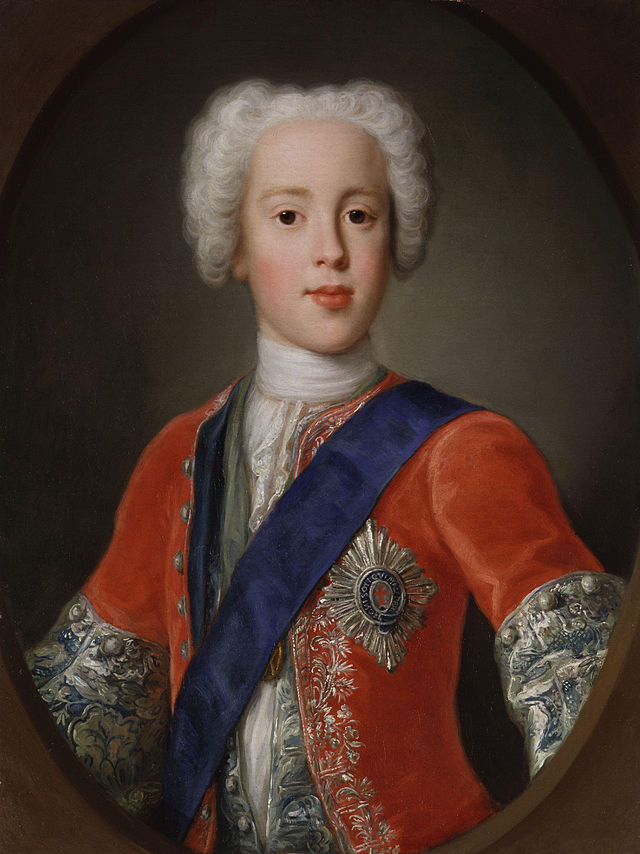
Charles Edward Stuart, son of Prince James Francis Edward Stuart, gained momentum and following for believers of the Jacobite cause in the mid-18th century. Despite attempts by his father, the Old Pretender, to establish himself as King of England, Bonnie Prince Charlie gained stringent Scottish support in his crusade to reestablish the Stuart name. In a letter written in 1745, Charles wrote, “What Transport of Joy would the Bulk of the British Nation have felt upon a certain remarkable and never to be forgotten Period in our political History, (that great Change of Ministry which happened not long ago, when the Cries of a distressed People, supported by the Interest and Influence of powerful. Though designing Men, accomplished the Ruin of a mighty Minister;) how great would have been your Joy, had you then had from the Elector of Hanover such a Declaration, as that emitted the tenth of this Month by his Royal Highness, the Heir and Representative of our natural and only rightful Sovereign?” Prince Charles wrote to the people of England, imploring them to allow him to return as the “heir and representative of our natural and only rightful sovereign.”
Charles looked to other Catholic monarchies in continental Europe to gain support and France promised him money and troops. As historian Jeffrey Stephen wrote, “He [Charles] argued that that a cross-channel invasion rather than a Scottish landing was the easiest and most likely for France to undertake.” Charles needed the monetary support of other Catholic European countries to help his crusade to regain what he believed was his rightful throne. France was willing to assist Charles to reestablish Catholic dominance, which was one of the reasons Scottish Jacobites were willing to pledge their loyalty. While some Scottish had converted to Protestantism during the Protestant Reformation, many continued to practice Catholicism.

Scottish Jacobites sought to utilize the cause for their own independence from England. A conflicting ideology existed between Scottish supporters and Prince Charles who sought to establish his claim to the throne and little else. Jeffrey Stephen stated regarding the Scottish council that convened to plan the final rebellion of 1745, “The Scottish members of the council did not share Charles’s determination for an invasion [of England] because they had a distinctly nationalist, Scottish agenda.” While Charles wanted to invade England with French support, Scottish Jacobites wanted to continue championing anti-union sentiments. A divide between ideologies continued widening between Prince Charles and Scottish Jacobites.
Animosity towards England increased after the Act of Union in 1707 with many Scots still retaining their existing social systems, such as clans, that were very different to any economic or social systems that were in England at the time. Prince Charles may have made promises to Scottish Jacobites that promoted their anti-union perspectives initially, but in 1745, his main goal was to invade England and retake his throne. Charles believed it was “Britain or bust” according to Jeffrey Stephen and Scotland was of little importance to him towards the end of the Jacobite movement in 1745. Scottish Jacobites, in contrast, had spurred a political culture that existed on both sides of the Jacobite cause; those in favor and those against.